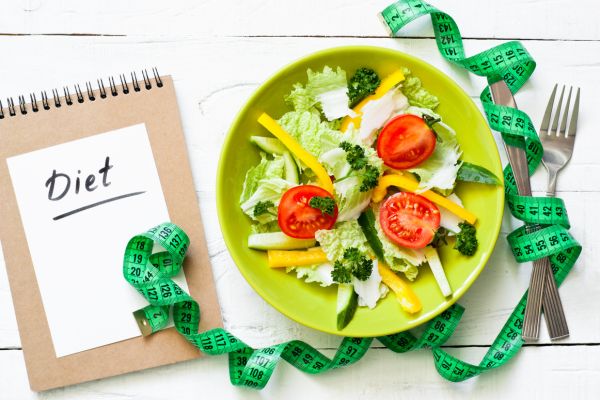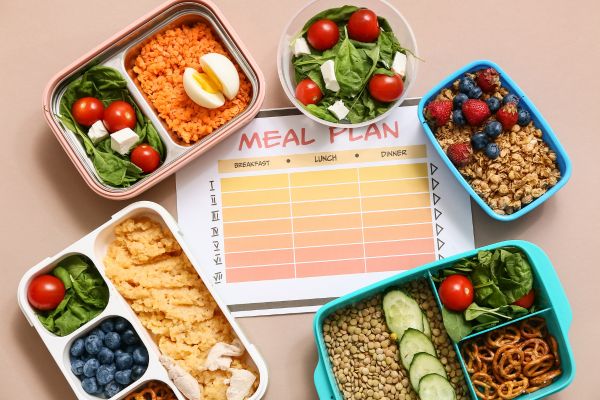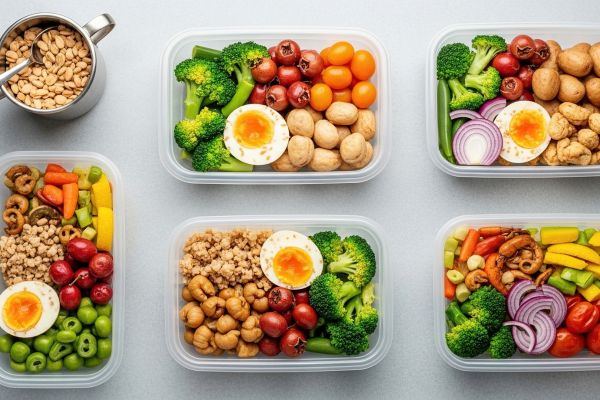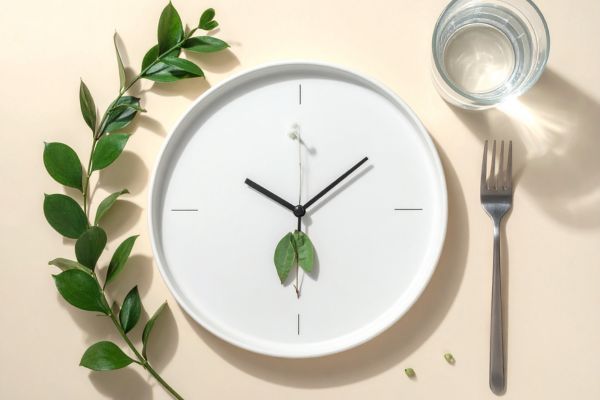Why Vegan Diets for Weight Loss Are Gaining So Much Attention
Let’s be real, weight loss isn’t always as simple as “eat less, move more.” Anyone who’s tried knows it can feel like a never-ending battle of willpower versus cravings. That’s why so many people are turning to vegan diets for weight loss—not just as a trend, but as a lifestyle shift that actually works for many. Beyond shedding pounds, it’s about fueling your body with foods that are nutrient-dense, naturally lower in calories, and free from the heavy, processed stuff that slows you down.
The thing is, going vegan doesn’t mean living off plain lettuce leaves or endless salads. A well-balanced vegan diet can be incredibly satisfying, full of flavor, and surprisingly effective when it comes to trimming down.
How Vegan Diets Support Weight Loss
So why exactly are vegan diets for weight loss effective? It comes down to a few key points:
Plant-based foods tend to be lower in calories but higher in volume, meaning you can eat more without overloading on energy. Think beans, lentils, vegetables, fruits, and whole grains—they fill you up while keeping calories in check. Plus, fiber is a big player here. Fiber slows down digestion, stabilizes blood sugar, and helps you feel satisfied longer. That’s a game-changer when you’re trying not to snack on junk every hour.
Another factor is the absence of many calorie-dense animal products. Butter, cheese, fatty cuts of meat—they’re out of the picture. Instead, you’re choosing foods that are lighter on the waistline but still nourishing.
The Role of Whole Foods in Vegan Weight Loss
Now, let’s clear something up. A vegan diet doesn’t automatically mean healthy. Potato chips and soda are technically vegan, but let’s be honest—they’re not going to help with weight loss. The real magic of vegan diets for weight loss comes from focusing on whole foods.
Whole grains like quinoa, oats, and brown rice give you long-lasting energy. Legumes such as beans, lentils, and chickpeas are protein-packed, keeping you satisfied without loading up on fat. Vegetables and fruits not only add color to your plate but also deliver essential vitamins and minerals that keep your body running smoothly.
When your meals center around these types of foods, weight loss feels less like a punishment and more like a natural side effect of eating well.
Vegan Protein and Weight Loss
One of the most common worries about vegan eating is protein. People assume that without meat, your diet will lack the strength to build or maintain muscle. But the truth? Protein is everywhere in plant-based foods—you just have to know where to look.
Lentils, tofu, tempeh, seitan, quinoa, nuts, and seeds are all fantastic sources of protein. Including these regularly helps with satiety, muscle recovery, and maintaining a leaner body composition while losing fat. When protein is paired with high fiber, as it often is in vegan foods, the benefits double up—you stay fuller for longer and avoid overeating.
Managing Cravings on a Vegan Diet
Let’s be real—cravings don’t just vanish when you go vegan. That late-night urge for something sweet or salty? Still there. But here’s the good news: vegan diets offer healthier swaps that hit the spot without derailing your goals.
Craving something creamy? Blend frozen bananas with a splash of plant-based milk for “nice cream.” Want something crunchy and salty? Air-popped popcorn with a sprinkle of nutritional yeast does the trick. Even burgers and pizza can be made vegan-friendly with healthier alternatives that keep calories in check.
This flexibility is why many people stick with vegan eating long-term—it doesn’t feel restrictive once you learn how to adapt your favorites.
Common Mistakes to Avoid
Of course, like any weight loss strategy, there are pitfalls. One big mistake with vegan diets for weight loss is overloading on processed vegan foods. Vegan cookies, faux meats, and packaged snacks might look healthy, but they can be just as calorie-dense as their non-vegan versions.
Another issue is not eating enough variety. Cutting out animal products means you need to be intentional about nutrients like vitamin B12, iron, omega-3s, and calcium. Most of this can be covered with a balanced plate and, in some cases, supplements. Skipping out on these essentials can leave you feeling drained, which makes sticking to your plan way harder.
How to Make Vegan Diets Work for Weight Loss
The best approach is to build meals that are colorful, balanced, and satisfying. Fill half your plate with veggies, add a portion of whole grains, and top it off with a plant-based protein. Don’t forget healthy fats like avocado, olive oil, or nuts—they’re calorie-dense but also help keep hunger in check.
Meal planning can be a game-changer here. Knowing what you’re going to eat ahead of time reduces the chances of reaching for convenience foods when you’re tired or busy. Batch cooking soups, stir-fries, or grain bowls can make life easier and keep you on track.
The Lifestyle Aspect of Vegan Diets
Weight loss isn’t just about food—it’s about mindset and lifestyle. One reason vegan diets for weight loss are so effective for many people is that they encourage mindfulness around what you’re eating. You start reading labels more closely, making conscious choices, and often end up with a cleaner, more intentional diet overall.
And let’s not forget the added motivation that comes from aligning weight loss with values. For some, knowing their diet is better for animals and the environment gives them that extra push to stay consistent. When weight loss ties into a bigger purpose, it’s easier to stick with it.
Final Thoughts
At the end of the day, vegan diets for weight loss aren’t a quick fix or magic solution. But they can absolutely work if you focus on whole, nutrient-rich foods and avoid falling into the trap of processed vegan junk. The balance of fiber, protein, and lower-calorie meals makes it easier to naturally reduce intake without feeling deprived.
The thing is, weight loss success depends on creating a lifestyle you can actually maintain. A vegan diet offers variety, flexibility, and a sense of purpose that goes beyond the scale. So if you’re looking for a way to shed pounds while still enjoying your meals—and maybe even improving your overall health—it might just be worth giving it a try.



